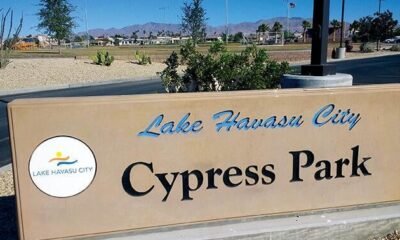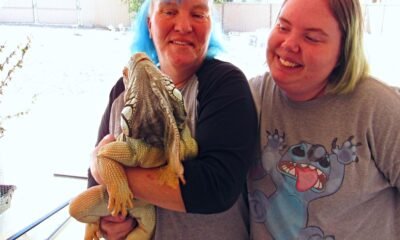Business
Mohave Community College President Unveils Vision for Lake Havasu City’s Future

With the announcement of Arizona State University’s impending closure of ASU Havasu next June, Mohave Community College (MCC) is poised to redefine its role in Lake Havasu City. MCC President Stacy Klippenstein discussed the community college’s plans for future growth amid this significant transition.
MCC has been an educational presence in Lake Havasu City since 1971, currently serving 1,017 students from the area. Klippenstein emphasized the need for MCC to fill the educational gap left by ASU while enhancing offerings to better serve Mohave County and the city.
MCC is actively evaluating the bachelor’s degrees previously provided by ASU. Klippenstein highlighted a strategic focus on programs in biology, human services, psychology, and business, with three proposed bachelor’s programs set to be presented to the board of governors in February. In addition to new degree offerings, MCC also plans to expand its certificates in technical fields and associate degree programs.
The urgency to respond to ASU’s exit is underscored by Klippenstein’s commitment. “If ASU does leave, we’re ready to step up,” he stated, assuring that engagements with local leaders will shape future analyses and decisions.
In response to local workforce needs, MCC plans to expand its nursing and teaching programs. Currently, an accelerated licensure program for teaching allows individuals with bachelor’s degrees to transition into education. Klippenstein details that MCC is developing a comprehensive four-year degree in education tailored for recent high school graduates.
Nursing programs are also set to grow. MCC aims to introduce a Bachelor of Science in Nursing (BSN) program, adapting to the community’s medical needs. Previously, some students sought BSN degrees at ASU Havasu. Klippenstein noted the significant use of MCC facilities for ASU’s nursing simulation training.
Historically, 78% of MCC students are first-generation college attendees and many are non-traditional learners. Klippenstein has seen a diverse range of students, including those returning to education after years in the workforce, indicating MCC’s vital role in catering to various educational paths.
MCC’s future also includes innovative programs such as culinary arts, human services, and specialized training for marine and RV technicians. Klippenstein spoke on ongoing plans to establish a training facility for various technical fields, which remain scarce in Western Arizona.
As discussions with industry partners unfold, Klippenstein recognized the potential for technical certificates to attract local talent. Renovations to the current facilities will be necessary to accommodate these changes and enhance health program offerings.
Regarding enrollment shifts as ASU Havasu closes, Klippenstein acknowledged uncertainty but indicated possibilities for increases in specific areas like nursing. Some clinical resources previously shared with ASU will become available, potentially benefiting MCC graduates seeking local employment.
Lastly, Klippenstein noted the opportunity for dual enrollment programs with local high schools, emphasizing MCC’s intent to collaborate closely with ASU, regardless of its future in Lake Havasu. “Whether ASU plans to stay or not, we’ll always partner with ASU,” he affirmed, reinforcing MCC’s commitment as a cohesive educational unit in the community.

















